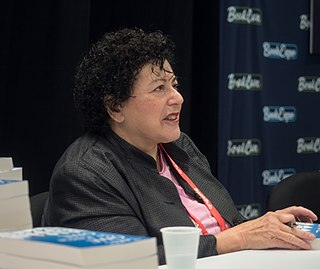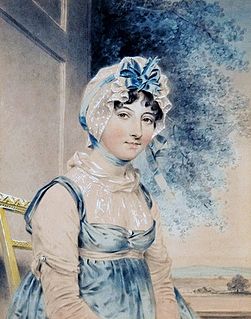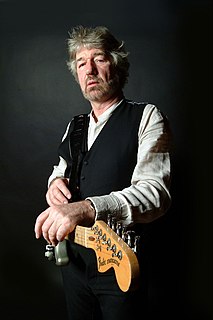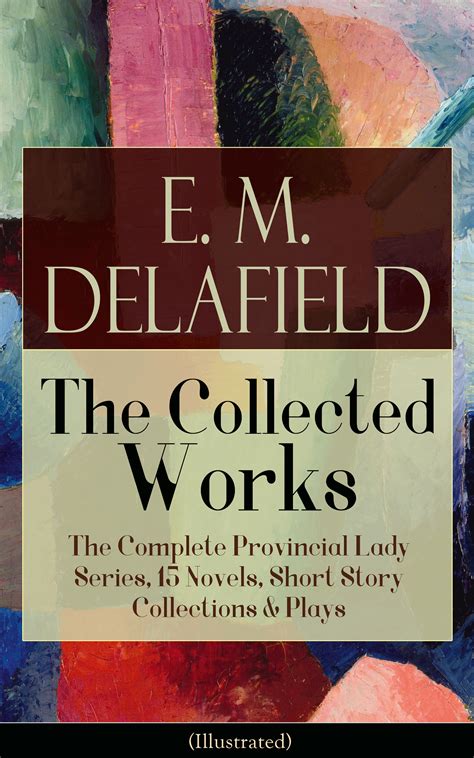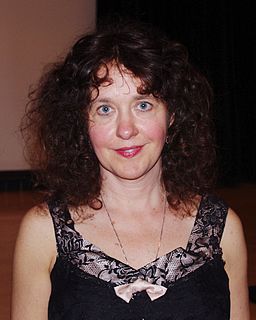A Quote by Richard Russo
You can be interested in a Jane Smiley novel whether or not anyone says a word. She enters into her characters thoughts with great understanding and depth.
Quote Topics
Related Quotes
I think bringing depth to characters means really needing to find out who this girl is, what is she passionate about, what makes her tick, what gets her going in life. So I did a lot of backstory for who she was and sometimes it comes across screen and sometimes it doesn't. You never know, because you're not the director, but you can only do your work and hope that it somehow subtly is infiltrated in that. But I think the characters I've played for the most part have depth, just not in the way that you think they do.
I was once doing a question and answer period with the novelist Jane Smiley in a bookstore and someone asked us what our processes were and Jane said hers and then I said mine and Jane said, "Well, if I had a student like that I'd force him never to write like that again because you could never write a novel in the way that you write poetry."
I can never be who I was. I can simply watch her with sympathy, understanding, and some measure of awe. There she goes, backpack on, headed for the subway or the airport. She did her best with her eyeliner. She learned a new word she wants to try out on you. She is ambling along. She is looking for it.
My mother took too much, a great deal too much, care of me; she over-educated, over-instructed, over-dosed me with premature lessons of prudence: she was so afraid that I should ever do a foolish thing, or not say a wise one, that she prompted my every word, and guided my every action. So I grew up, seeing with her eyes, hearing with her ears, and judging with her understanding, till, at length, it was found out that I had not eyes, ears or understanding of my own.
She divorced her husband, y' know. I never knew him, it was before I met Jane. Apparently she came back from work one mornin' an' found her husband in bed with the milkman. With the milkman, honest to God. Well, apparently, from that day forward Jane was a feminist. An' I've noticed, she never takes milk in her tea.
Once she made him watch Pride and Prejudice and for ages he would re-word Mr Bingley's apology to Jane Bennet, saying, 'I've been an inexplicable fool', for anything from losing his keys to burping out loud. Her reply to anything she wanted to do was Jane Bennet's response to Bingley's marriage proposal, 'A thousand times yes.
Marriage I think For women Is the best of opiates. It kills the thoughts That think about the thoughts, It is the best of opiates. So said Maria. But too long in solitude she'd dwelt, And too long her thoughts had felt Their strength. So when the man drew near, Out popped her thoughts and covered him with fear. Poor Maria! Better that she had kept her thoughts on a chain, For now she's alone again and all in pain; She sighs for the man that went and the thoughts that stay To trouble her dreams by night and her dreams by day.
I thought as I rode in the cold pleasant light of Sunday morning how silent & passive nature offers, every morn, her wealth to man; she is immensely rich, he is welcome to her entire goods, which he speaks no word, only leaves over doors ajar, hall, store room, & cellar. He may do as he will: if he takes her hint & uses her goods, she speaks no word; if he blunders & starves, she says nothing.







